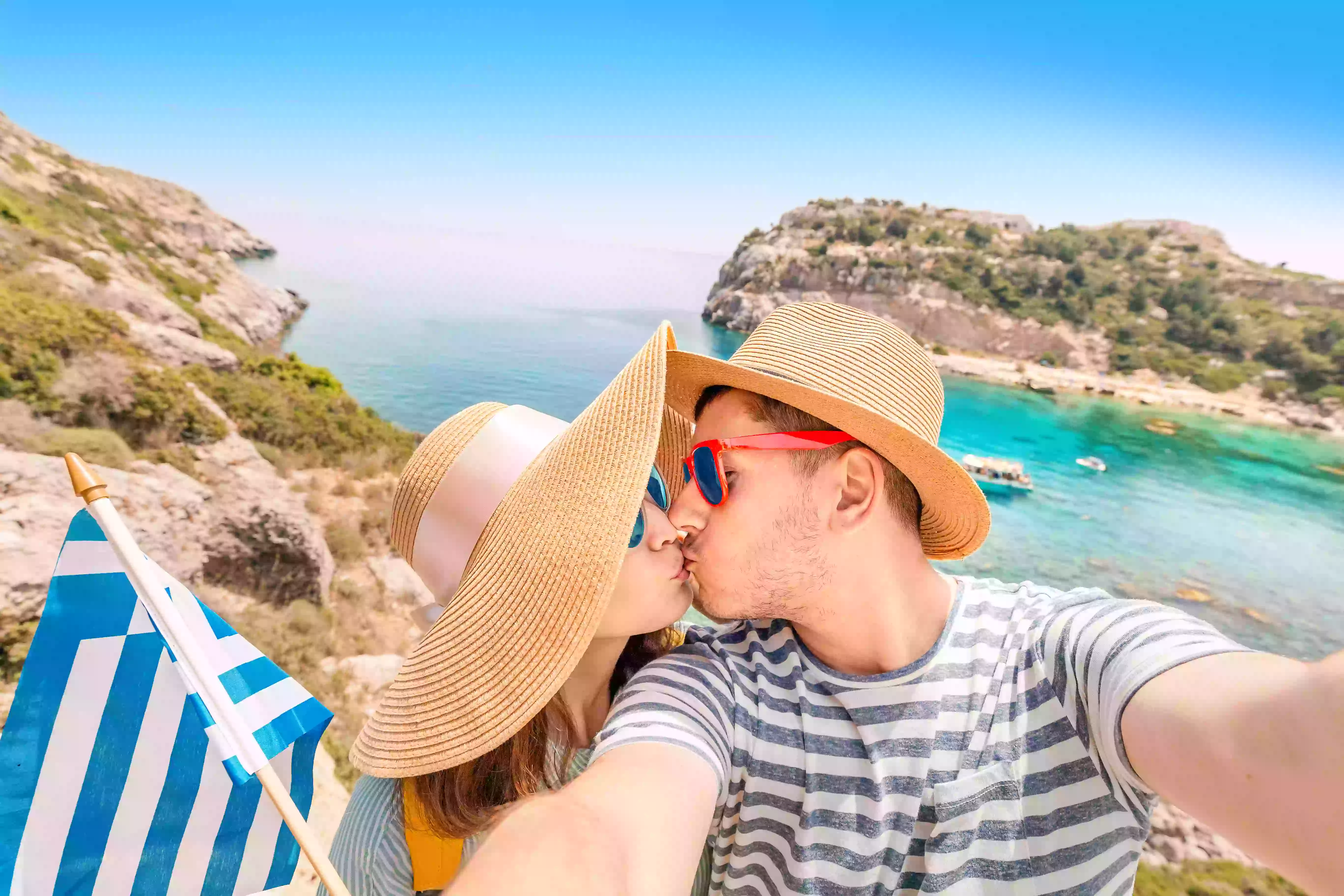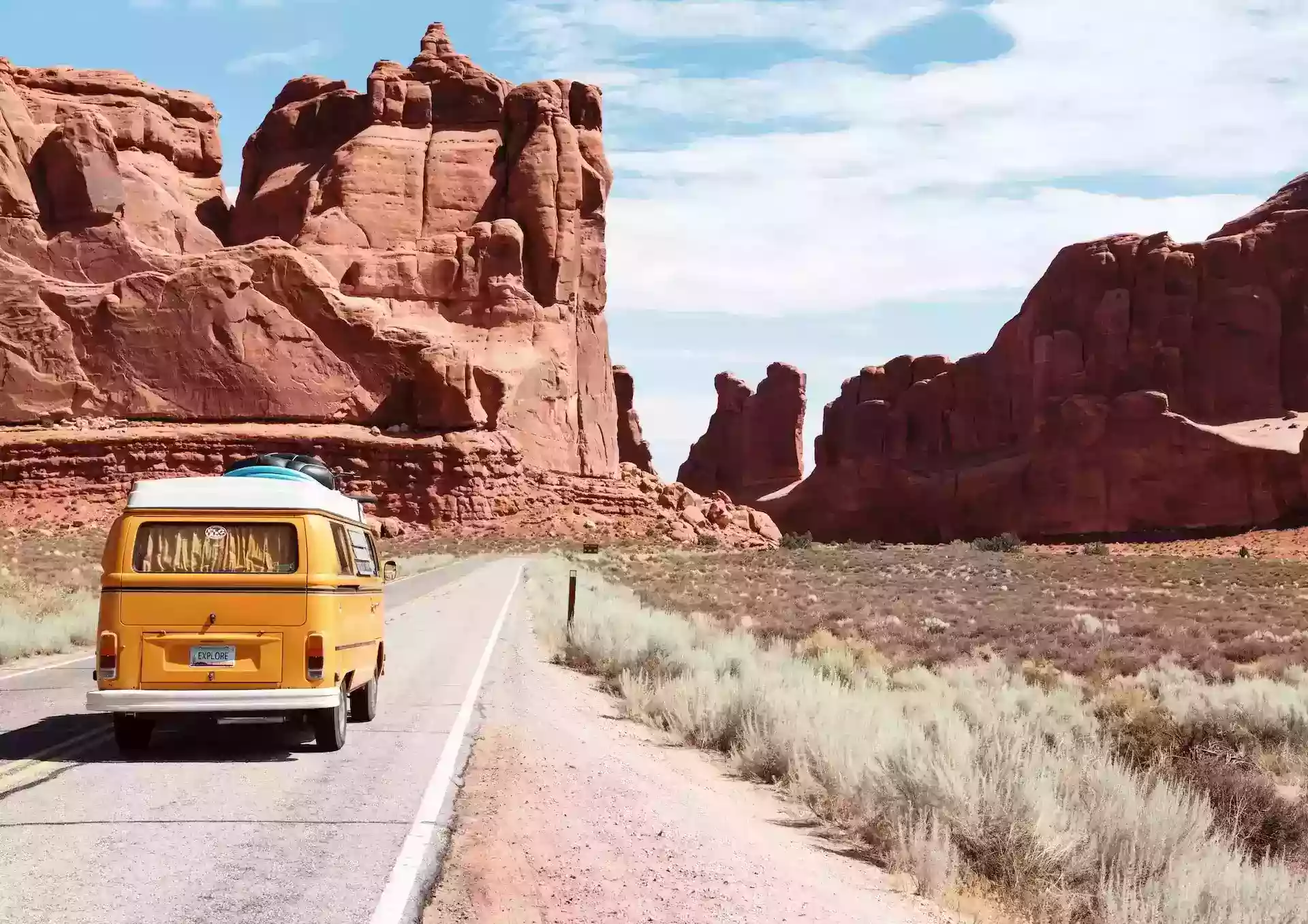Iceland's Natural Wonders and Cultural Delights: A Comprehensive Guide
Morgan Wiggins
Apr14,2023 • 2 min read

IExperience the Northern Lights: Best Locations and Viewing Tips in Iceland
celand is a country of unparalleled beauty, with natural wonders that attract visitors, from towering waterfalls and erupting geysers to stunning glaciers and the elusive Northern Lights. Iceland has something for everyone. But Iceland is not just about its natural wonders; it is also a country with a rich history and vibrant culture, exemplified by its capital city, Reykjavik. In this article, we will explore the best places to visit in Iceland, from its natural wonders to its cultural delights.
Natural Wonders of Iceland: Waterfalls, Geysers, and Glaciers
Iceland is a country with an abundance of natural wonders, and visitors should not miss the opportunity to see its breathtaking waterfalls, geysers, and glaciers. The most famous waterfall in Iceland is undoubtedly the majestic Gullfoss, which cascades down two tiers into a deep crevice. Another must-see waterfall is Seljalandsfoss, which visitors can walk behind for a unique perspective. Geysir, the namesake of all geysers, is a natural phenomenon that erupts every few minutes, shooting water high into the air. And no trip to Iceland would be complete without experiencing one of its glaciers, such as Vatnajökull, the largest glacier in Europe.
Exploring Iceland's Golden Circle: Top Attractions and Hidden Gems
The Golden Circle is a popular tourist route in Iceland that includes three of the country's top attractions: the UNESCO-listed Thingvellir National Park, the geothermal area of Geysir, and the aforementioned Gullfoss waterfall. But there are also hidden gems along the way, such as the picturesque Faxi waterfall and the volcanic crater Kerið. Visitors can also explore the nearby town of Selfoss and its many restaurants and shops.
Experience the Northern Lights: Best Locations and Viewing Tips in Iceland
The Northern Lights, also known as the Aurora Borealis, is a natural phenomenon that can only be seen in a few places on Earth, and Iceland is one of them. The best time to see the Northern Lights is from September to April and the best locations are away from light pollution. Some of the best places to see the Northern Lights in Iceland include the Snaefellsnes Peninsula, Jökulsárlón Glacier Lagoon, and Lake Myvatn. Visitors should also be aware of the best viewing times, which are from 10 PM to 2 AM.
Relaxing in Iceland's Geothermal Pools: Blue Lagoon, Secret Lagoon, and More
Iceland is known for its abundance of hot springs and geothermal pools, which are perfect for relaxing after a day of exploring. The Blue Lagoon is the most famous of these pools, with its milky blue water and luxurious amenities. But there are also many other geothermal pools to choose from, such as the Secret Lagoon, which is more rustic and less crowded. Visitors can also explore the Myvatn Nature Baths, the Laugarvatn Fontana Geothermal Baths, and the Seljavallalaug Pool, which is located in a remote valley.
The Wild Westfjords: Adventures in Iceland's Rugged and Remote Region
The Westfjords is a region in Iceland that is often overlooked by tourists, but it is a place of rugged beauty and adventurous spirit. The region is home to the Hornstrandir Nature Reserve, a remote and untouched wilderness that is perfect for hiking and wildlife spotting. Visitors can also explore the picturesque fishing village of Isafjordur, with its colorful houses and bustling harbor.
Reykjavik: The Vibrant Capital City of Iceland and Its Cultural Highlights
Reykjavik is the capital and largest city of Iceland, and it is a hub of cultural activity and entertainment. Visitors can explore the colorful buildings of the city's old town, including the iconic Hallgrimskirkja Church. The National Museum of Iceland is another must-visit attraction, where visitors can learn about the country's history and culture. Reykjavik is also known for its vibrant nightlife, with many bars, clubs, and restaurants to choose from. And for those looking for a unique experience, the city's public art installations, such as the Sun Voyager sculpture, are not to be missed.
Trekking and Hiking: Iceland's Best Trails and National Parks
Iceland is a hiker's paradise, with many trails and national parks to explore. One of the most popular hiking trails is the Laugavegur Trail, which takes hikers through Several landscapes, including glaciers, hot springs, and volcanoes. Other popular trails include the Hornstrandir Nature Reserve and the Skaftafell National Park. Visitors can also explore the Vatnajökull Glacier, the largest glacier in Europe, and the Jökulsárlón Glacier Lagoon, which is known for its stunning icebergs.
Discovering Iceland's Viking History and Norse Mythology
Iceland has a rich history and culture rooted in Viking history and Norse mythology. Visitors can explore the country's Viking heritage at the Settlement Exhibition in Reykjavik, which features interactive exhibits and archaeological artifacts. The Saga Museum is another attraction that brings Iceland's history to life, with life-size figures and audio guides telling the stories of Icelandic sagas. And for those interested in Norse mythology, the Ásatrúarfélagið temple is a unique attraction that honors the ancient gods and goddesses of Iceland.
Icelandic Cuisine: Traditional Foods and Modern Dining Experiences
Icelandic cuisine is a mix of traditional foods and modern dining experiences. Visitors can try the country's most famous dish, fermented shark, at the Reykjavik Flea Market. Other traditional dishes include lamb soup, skyr, and the famous Icelandic hot dog. For a more modern dining experience, Reykjavik is home to many high-end restaurants, such as Dill and Matur or Drykkur. Visitors can also sample Icelandic craft beers and spirits, such as Brennivín and Einstök beer.
Exploring Iceland's Black Sand Beaches and Dramatic Coastlines
Iceland's coastline is one of its most stunning features, with black sand beaches and dramatic cliffs. The Reynisfjara black sand beach is a must-visit attraction, with its towering basalt columns and crashing waves. Visitors can also explore the Dyrhólaey peninsula, which offers breathtaking views of the surrounding landscape. And for those looking for a more remote experience, the Westman Islands, located off the southern coast of Iceland, is a hidden gem.
The Land of Fire and Ice: Exploring Iceland's Volcanoes and Geothermal Areas
Iceland's volcanic landscape is unlike anything else in the world, and visitors should not miss the chance to explore its many geothermal areas and volcanoes. The geothermal area of Geysir, located in the Golden Circle, is home to the famous geyser that gives the area its name. The nearby Thingvellir National Park is also a must-visit attraction, with its dramatic landscape of lava fields and fissures. Other geothermal areas to explore include Hveragerði, which is known for its hot springs and geysers, and the Kerlingarfjöll mountain range, which features hot springs, colorful mountains, and glaciers.
Akureyri: Iceland's Charming Second City and Gateway to the North
Akureyri is Iceland's second-largest city, and it is a charming destination in its own right. Located in the north of Iceland, Akureyri is often called the "Gateway to the North," and it offers visitors a different perspective on Icelandic culture and history. The city is home to many museums and galleries, such as the Akureyri Art Museum and the Nonni Museum. Visitors can also explore the city's botanical gardens, which feature over 7,000 plant species. Akureyri is also a great base for exploring the surrounding countryside, including the nearby Goðafoss waterfall and the Mývatn Nature Baths.

